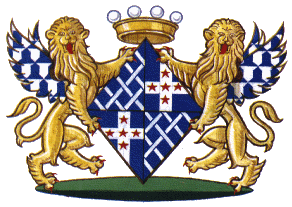|
|
 |
|
|
The Peerage - Barons
 Barons are the lowest rank of peerage, yet baronies are the most ancient of all peerage titles, the premier barony of de Ros being created in 1264. While this peerage was held by a woman, Lord Mowbray, Segrave (created 1283) and Stourton claimed to be the premier baron, but since 1983 he must now take second place. In an heraldic representation barons display four silver balls on their coronets. Their children are all 'Hons.' and their heirs bear no subsidiary title except, as in many Scottish peerages where they are entitled to the designation of 'Master'. The eldest son of the premier baron of Scotland, Lord Forbes, is known as The Master of Forbes. Barons are the lowest rank of peerage, yet baronies are the most ancient of all peerage titles, the premier barony of de Ros being created in 1264. While this peerage was held by a woman, Lord Mowbray, Segrave (created 1283) and Stourton claimed to be the premier baron, but since 1983 he must now take second place. In an heraldic representation barons display four silver balls on their coronets. Their children are all 'Hons.' and their heirs bear no subsidiary title except, as in many Scottish peerages where they are entitled to the designation of 'Master'. The eldest son of the premier baron of Scotland, Lord Forbes, is known as The Master of Forbes.
Some of the oldest English baronies, like many Scottish ones, pass through the female line, though most are restricted to heirs male. Life Peers are considered the equals in all respects except that the title dies with them, although their children are 'Hons'. The BaronetageQueen Victoria considered baronetcies useful for 'ennobling the middle classes' without encumbering them with grand peerages. In this way the Queen underrated the honour. King James I 'invented' the title in 1611, partly to raise money (dues were involved) and partly to encourage development in the province of Ulster. Baronets were recruited from the old untitled landed families and the minimum requirement for eligibility was the possession of an estate to the value of £1,000. Burke says the first baronets were 'among the best descended gentlemen in the Kingdom'. The present premier baronet of England is Sir Nicholas Bacon, Bt. The Order of Baronets in Scotland was instituted in 1625 ostensibly to encourage colonisation of Nova Scotia and early patents included grants of land there even though it had fallen to the French. The earliest extant Scottish baronetcy Sitwell, baronet of Renishaw and the arms of the extinct baronetcy of Harpur-Crewe was conferred on Sir Robert Innes, 20th of that Ilk and now held by the Duke of Roxburghe. Baronets created since the union of Great Britain and Northern Ireland have been 'of the United Kingdom'. All baronets other than those of Nova Scotia bear a small silver shield or canton on their arms charged with 'the bloody hand of Ulster'. Baronets of Nova Scotia suspend the arms of the colony on a ribbon beneath the shield, or display them as an augmentation. Baronetcies were created widely during the last century and a half to reward distinguished soldiers, politicians, writers (Scott and Hall Caine), Lord Mayors of London, doctors, lawyers, merchant princes and even rich Indian merchants (Jejeebhoy and Jahangir). No baronetcies have been created since December 1964. |
© The O'Brien Clan Since 1997 |